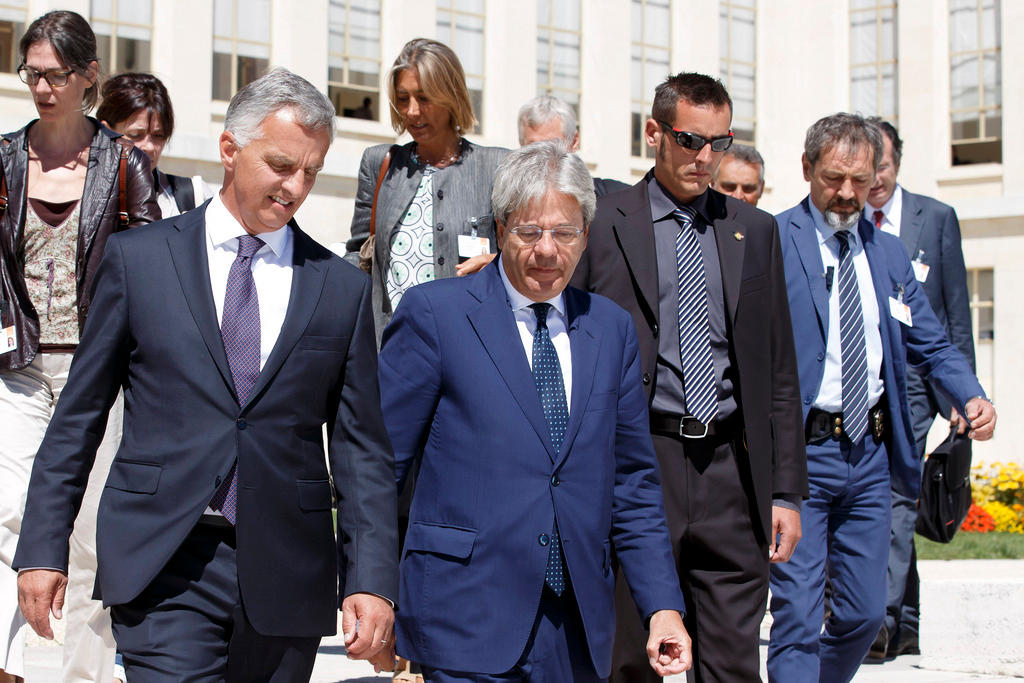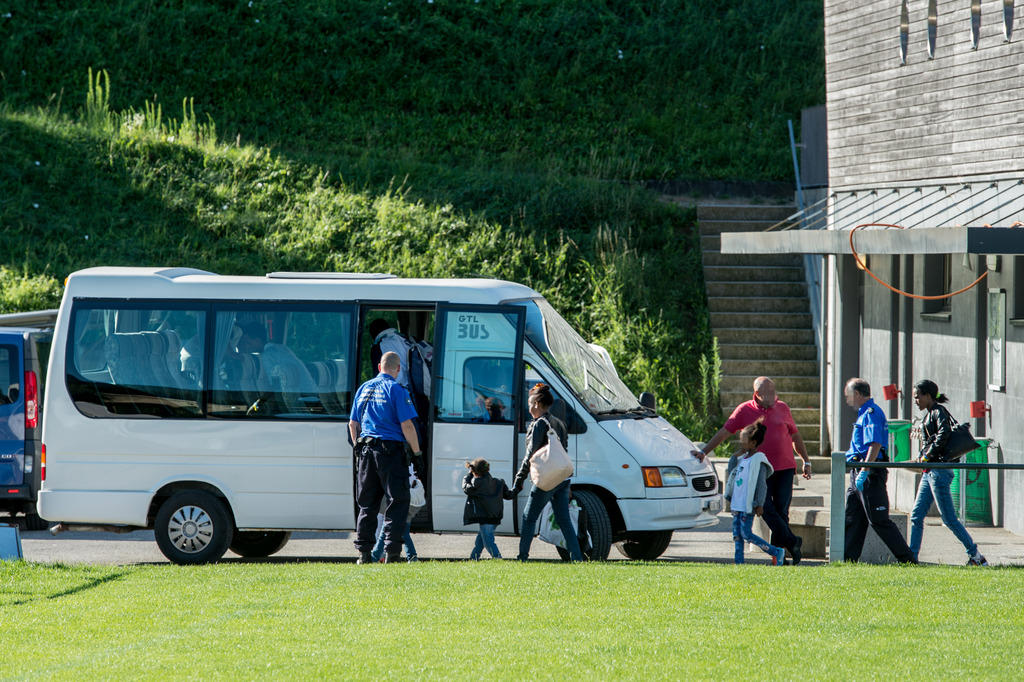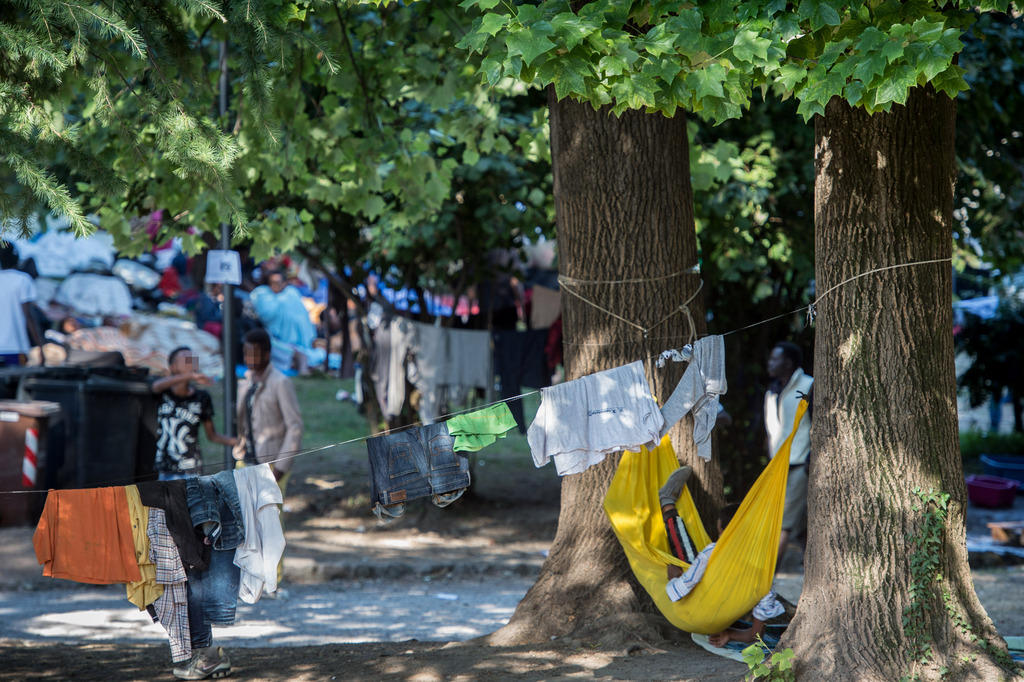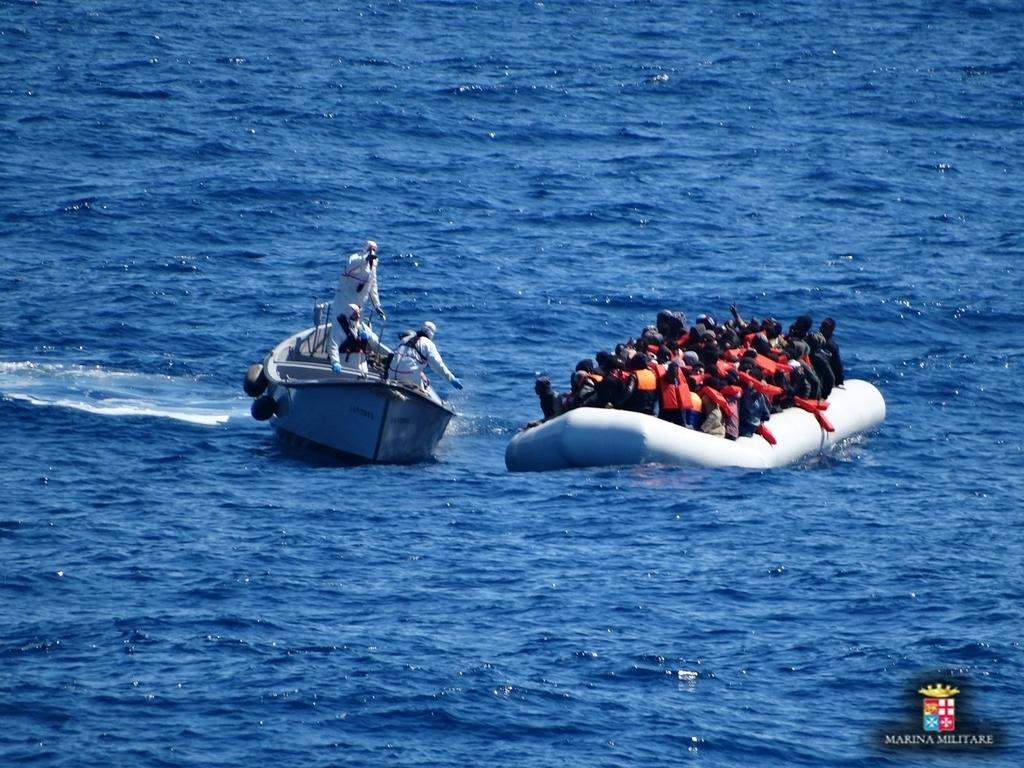Switzerland and Italy seek better coordination over Europe

The foreign ministers of Switzerland and Italy have agreed to work closer together, in particular over European policy. The ministers were meeting on the sidelines of the Swiss ambassadors’ annual conference, held for the first time at the United Nations complex in Geneva.
Addressing an audience of 320 Swiss diplomats, including Swiss Foreign Minister Didier Burkhalter, gathered at the UN on Monday morning, Italy’s Minister of Foreign Affairs Paolo Gentiloni gave a long speech in Italian extending his gratitude.
“Thank you, Didier, for inviting me to such an important meeting,” said the Italian minister. “I consider this an example of the strength of Swiss-Italian relations.”
Gentiloni was a guest speaker at the ambassadors’ conference (see infobox below). He later held bilateral talks with Burkhalter.
Relations between the two nations currently centre on cross-border issues, trade (volume of trade worth CHF34 billion ($35 billion) in 2015) and ties with the European Union.
A Swiss foreign ministry statement released on Monday said Gentiloni had reiterated Italy’s support for a ‘mutually agreed solution with the EU’ concerning efforts to find a compromise on how to act on the 2014 Swiss referendum to limit immigration without breaching bilateral treaties with the EU.
In his opening address, Burkhalter thanked Italy for its support, especially concerning European migration and international security, in particular within the Organisation for Security and Co-operation in Europe (OSCE), which Italy will preside in 2018.
Recently, there has been mutual progress in other areas. After years of controversy over untaxed Italian assets in Swiss banks, in 2015 Switzerland and Italy finally signed an agreement on future cooperation in tax matters.
But Burkhalter admitted that as neighbours they still have several problems to resolve.
Border flashpoint
Switzerland’s border with Italy has become a flashpoint in Europe’s migrant crisis. There has been a build-up of people on Italy’s frontier after Swiss border guards started clamping down on crossings by migrants since mid-July. In the first seven months of 2016, Switzerland turned back more than 8,000 migrants to Italy from Ticino. Guards on the Italian border turned away 4,149 people last month, a record number, it was reported earlier this month.
Non-governmental and human rights groups like Amnesty International have called for clarifications from Switzerland over migrants’ claims that they were denied a chance to speak to border authorities and that requests to seek Swiss asylum went unheeded.
At the conference there was little mention of the border problems from either minister.
The foreign ministry said: ‘In light of the migration crisis and the situation in the Mediterranean region, the two foreign ministers intended to step up cooperation on migration-related matters. The two ministers stressed the need to apply existing rules and to continue to work towards a pan-European solution’.
In an interview with Swiss public television, RTS, on Monday evening Gentiloni refused to be drawn on Switzerland’s border clampdown. He nonetheless called for ‘flexibility, cooperation and a humanitarian spirit’ when handling asylum seekers at the frontier.
“This is not a bureaucratic activity. It’s dealing with people, frequently many unaccompanied minors,” he told RTS.
On a separate note, Burkhalter stressed the positive developments in the revision of the bilateral police agreement and expressed Switzerland’s desire to move forward swiftly to sign the bilateral agreement on the taxation of cross-border commuters. About 70,000 cross-border commuters from Italy come to work in Switzerland every day. Around 50,000 Swiss citizens live in Italy, while 310,000 Italian citizens live in Switzerland – the largest group of resident foreign nationals.
The annual gathering of Swiss diplomats is taking place at the United Nations European headquarters in Geneva from August 22-25. This year’s theme is: ‘Switzerland – stakeholder and beneficiary of the multilateral system’.
During his opening speech, Burkhalter reminded of Switzerland’s candidature for a non-permanent seat on the United Nations Security Council for the 2023–24 term. He noted that as both a full member of the UN and the home of the UN’s European headquarters in Geneva, Switzerland is an innovative, assertive and reliable partner.
On Tuesday, cabinet ministers Johann Schneider-Ammann, Doris Leuthard, Simonetta Sommaruga and Alain Berset will also address the ambassadors in a series of presentations and seminars.
The first two days of the conference will be devoted to panel discussions and workshops tackling current foreign policy issues and global challenges, including issues surrounding peace and security, sustainable development, migration, global health and economic cooperation.
Violent extremism, weapons of mass destruction, the impact of changing environmental conditions on security policy (environmental security) and the use of information technology will also be discussed with experts from the UN, civil society and the private sector.
The ‘Ambassadors and International Network Conference’ dates back to 1887, when the then President of the Confederation, Numa Droz, invited the heads of the five missions that existed at the time – Paris, Vienna, Rome, Berlin and Washington – to attend a conference.

In compliance with the JTI standards
More: SWI swissinfo.ch certified by the Journalism Trust Initiative





You can find an overview of ongoing debates with our journalists here . Please join us!
If you want to start a conversation about a topic raised in this article or want to report factual errors, email us at english@swissinfo.ch.